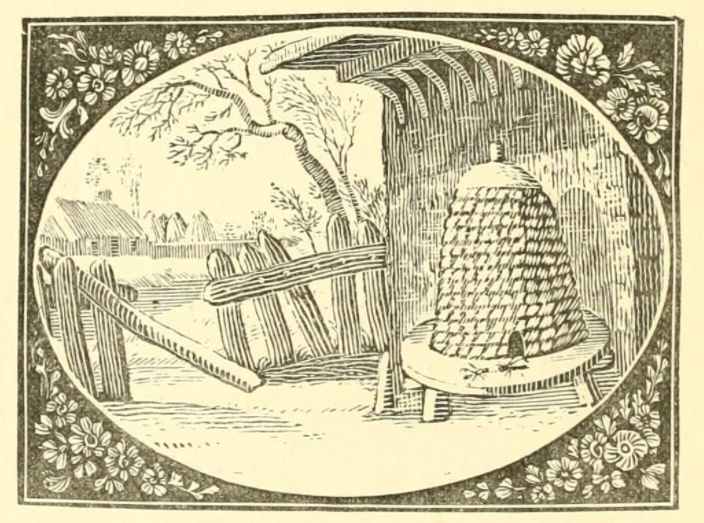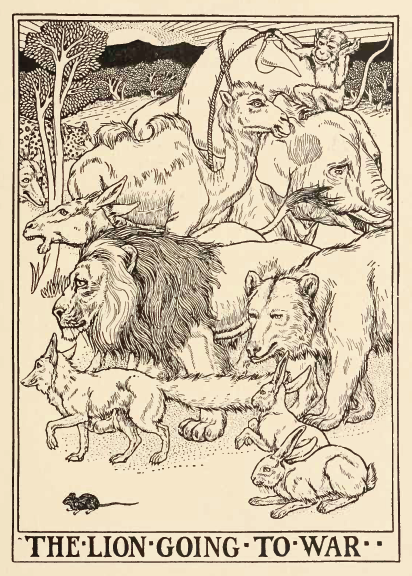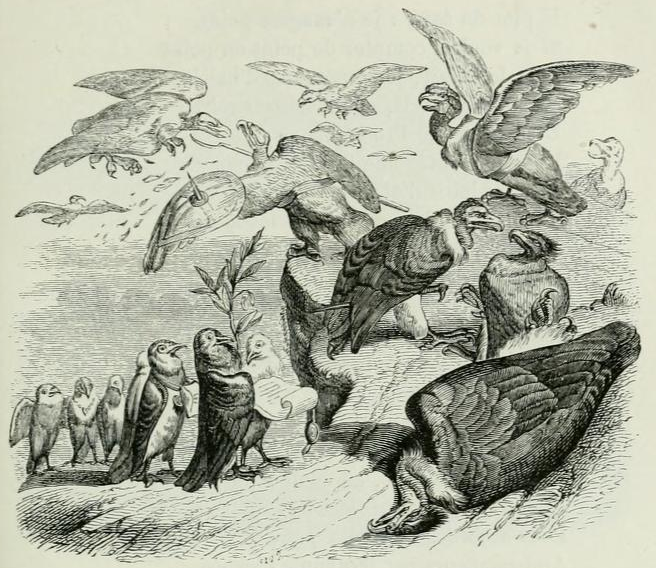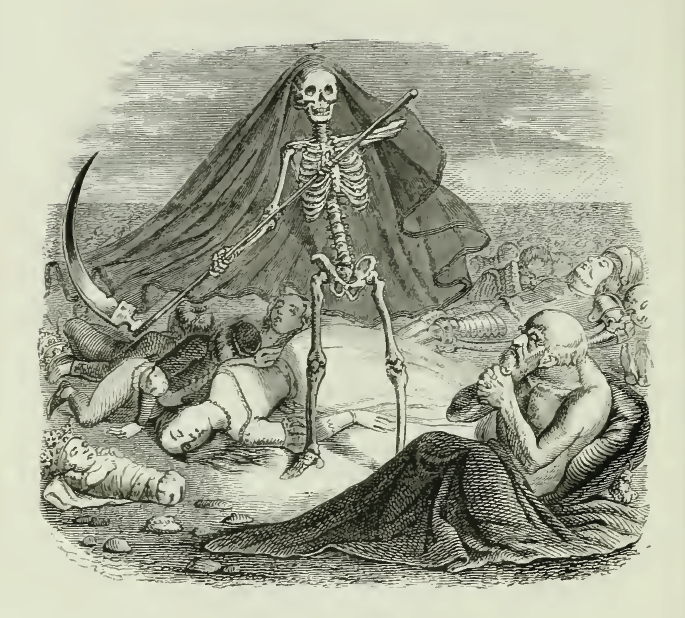161. Of a Gnat Asking Meat and Lodging of a Bee
When the gnat in the winter time conjectured that he should perish with cold and hunger, he went to the hives of the bees, asking meat and lodging from them, which if he should obtain from them, he promised that he would teach their children the art of musick. Then a certain bee answered, "But I had rather that my children should learn my art, which will be able to exempt them from the danger of hunger and cold."
Moral. The fable admonishes us that we instruct our children in those arts which are able to defend them from want.

162. Of the Ass the Trumpeter and the Hare the Letter-Carrier
The lion, the king of the four-footed beasts, about to fight against the birds, disposed his troops, but being asked by the bear, how the sluggishness of the ass or the fearfulness of the hare would bring victory to him, whom he saw to be present there among the rest, he answered, "The ass, with the sound of his trumpet, will rouse the soldiers to the fight, but the hare will perform the office of a letter-bearer through the swiftness of his feet."
Moral. This fable signifies that no one is so contemptible, who cannot be profitable to us in some thing.

163. Of the Hawks Enemies among Themselves, whom the Doves Reconciled
The hawks enemies among themselves contended daily, and busied with their own enmities they very little infested the other birds. The doves grieving, ambassadors being sent, reconciled them, but they , when they were made friends among themselves did not cease to harass and kill the other weaker birds, and chiefly the doves. Then the doves said, by how much was the discord of the hawks better for us, than their agreement.
Moral. This fable admonishes that the hatreds of bad citizens among themselves rather are to be nourished than extinguished that, whilst they contend among themselves, they may permit good men to live quietly.

164. Of an Old Man Being Willing to Defer Death
A certain old man asked death who came to snatch him out of life, that he would delay till he made his will and prepared the other necessary things for so great a journey. To whom death said, "Why warned so often by me hast thou not prepared thyself?" And,when he said that he never had seen him before, he said, "When daily I snatched away not only thy equals of which none almost now remain, but also young men, boys, and infants, did not I admonish thee of thy mortality? When thou perceivedst thine eyes to grown dim, thy hearing to be lessened, and thy other senses to decay daily, did I not say to thee, that I was near? And dost thou deny that thou hast been admonished? Wherefore it is not to be deferred longer."
Moral. This fable shows that we ought to live as if always we saw death to be present.

165. Of a Covetout Man Speaking to a Bag of Money
A certain covetous man about to die and about to leave a vast heap of golden pieces ill gotten, asked a bag of monies which he commanded to be brought to him to whom he was about to produce pleasure? To whom the bag said, "To thine heirs, who will lavish the monies gotten by thee with so great sweat upon whores and feasts, and to the devils, who will torment thy soul with eternal punishments."
Moral. This fable shows it to be a most foolish thing to labour in those things, which may be about to produce joy to others, but torments to us.

No comments:
Post a Comment
Comments are limited to Google accounts. You can also email me at laurakgibbs@gmail.com or find me at Twitter, @OnlineCrsLady.